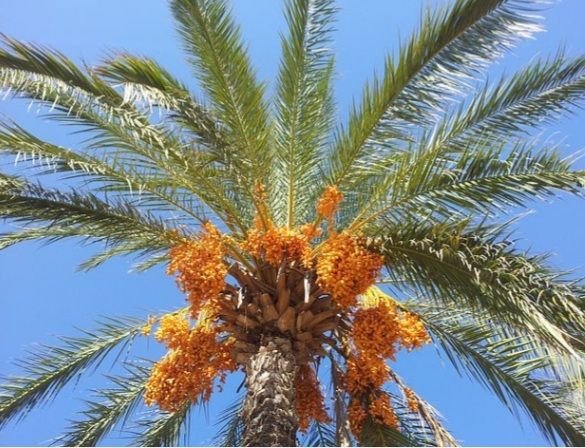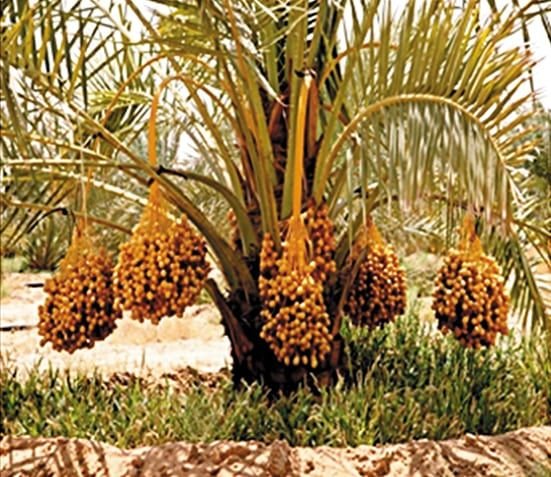In The Name of Allah, The Most Merciful, The Bestower of Mercy.
Allah, The Exalted, said:
وَعِندَهُۥ مَفَاتِحُ ٱلْغَيْبِ لَا يَعْلَمُهَآ إِلَّا هُوَ وَيَعْلَمُ مَا فِى ٱلْبَرِّ وَٱلْبَحْرِ وَمَا تَسْقُطُ مِن وَرَقَةٍ إِلَّا يَعْلَمُهَا وَلَا حَبَّةٍ فِى ظُلُمَٰتِ ٱلْأَرْضِ وَلَا رَطْبٍ وَلَا يَابِسٍ إِلَّا فِى كِتَٰبٍ مُّبِينٍ
And with Him are the keys of the Ghaib (all that is hidden), none knows them but He. And He knows whatever there is in (or on) the earth and in the sea; not a leaf falls, but he knows it. There is not a grain in the darkness of the earth nor anything fresh or dry, but is written in a Clear Record. [Al-An’am 59]
وَعِندَهُۥ مَفَاتِحُ ٱلْغَيْبِ لَا يَعْلَمُهَآ إِلَّا هُوَ
“And with Him are the keys of the Ghaib (all that is hidden), none knows them but He“.
In his explanation of the above Ayah, Imam Ash-Shanqeetee, may Allah have mercy upon him, brought a number of robust proofs to demonstrate and establish that even the most knowledgeable amongst the creation- Allah’s Messengers and Angels-do not posses knowledge of the Unseen. He said:
Aa’isha, may Allah be pleased with her, was falsely accused and the Prophet (peace and blessings of Allah be upon him) did not know whether she was innocent or not until Allah informed him, saying:
أُولَٰئِكَ مُبَرَّءُونَ مِمَّا يَقُولُونَ
“Such (good people) are innocent of (each and every) bad statement which they say”.
Prophet Ibrahim, peace be upon him, slaughtered a lamb for the angels, while not knowing that they were angels until they informed him that they were angels. Allah said that the angels said to him:
إِنَّا أُرْسِلْنَا إِلَىٰ قَوْمِ لُوطٍ
“We have been sent against the people of Lout (Lot)” . [11:70]
When the angels came to Prophet Lut, peace be upon him, he did not know that they were angels, and due to that Allah said:
عَصِيبٌ سِيءَ بِهِمْ وَضَاقَ بِهِمْ ذَرْعًا وَقَالَ هَٰذَا يَوْمٌ
“He was grieved on their account and felt himself straitened for them (lest the town people should approach them to commit lewdness with them). He said: This is a distressful day”.
And because of this, Allah said that lut said:
لَوْ أَنَّ لِي بِكُمْ قُوَّةً أَوْ آوِي إِلَىٰ رُكْنٍ شَدِيدٍ
“Would that I had strength (men) to overpower you, or that I could betake myself to some powerful support (to resist you)”. (11:80)]
He did not know the news the angels brought until they said to him:
[إِنَّا رُسُلُ رَبِّكَ لَنْ يَصِلُوا إِلَيْكَ – Verily, we are the Messengers from your Lord!]
Prophet Ya’qub, peace be upon him, lost his eye sight due to grieving for Yusuf (peace be upon him), whilst he was in Egypt. He did not know anything about Yusuf, peace be upon him, until Allah reveal news about him.
Prophet Sulayman, peace be upon him, even though Allah gave him authority over the devils and subjugated the wind in his service, did not know about the people Bil Qees until the Hud-’hud came with news about them. Allah said that the Hud’hud said:
أَحَطْتُ بِمَا لَمْ تُحِطْ بِهِ وَجِئْتُكَ مِنْ سَبَإٍ بِنَبَإٍ يَقِينٍ
“I have grasped (the knowledge of a thing) which you have not grasped and I have come to you from Saba’ (Sheba) with true news”.
Prophet Nuh, peace be upon him, did not know that his son – who was drowned- was not from those members of his household who were to be saved, as Allah said that Nuh said:
رَبِّ إِنَّ ابْنِي مِنْ أَهْلِي وَإِنَّ وَعْدَكَ الْحَقُّ
“O my Lord! Verily, my son is of my family! And certainly, Your Promise is true”.(11:45)
He did not know the reality of the affair until Allah informed him, saying:
بِهِ عِلْمٌ ۖ إِنِّي أَعِظُكَ أَنْ تَكُونَ مِنَ الْجَاهِلِينَ قَالَ يَا نُوحُ إِنَّهُ لَيْسَ مِنْ أَهْلِكَ ۖ إِنَّهُ عَمَلٌ غَيْرُ صَالِحٍ ۖ فَلَا تَسْأَلْنِ مَا لَيْسَ لَكَ
He said: “O Nuh (Noah)! Surely, he is not of your family; verily, his work is unrighteous, so ask not of Me that of which you have no knowledge! I admonish you, lest you be one of the ignorant.
Indeed Allah (The Most High) also stated in Surah Hud about Nuh that he said to his people:
وَلَا أَقُولُ لَكُمْ عِنْدِي خَزَائِنُ اللَّهِ وَلَا أَعْلَمُ الْغَيْبَ
And I do not say to you that with me are the Treasures of Allah, “Nor that I know the Ghaib (unseen)”.
When Allah said to the Angels:
أَنبِئُونِي بِأَسْمَاءِ هَٰؤُلَاءِ إِن كُنتُمْ صَادِقِينَ
Tell Me the names of these if you are truthful]; Allah said that the angels replied:
قَالُوا سُبْحَانَكَ لَا عِلْمَ لَنَا إِلَّا مَا عَلَّمْتَنَا
They (angels) said: “Glory be to You, we have no knowledge except what you have taught us.
Therefore, it is very clear that the most knowledgeable amongst the creation, the Messengers and the Angels, do not know anything of the unseen except what Allah makes known to them. Allah (The Most High) informs His Messengers what He wishes from the knowledge of the Unseen, as Allah stated:
وَمَا كَانَ اللَّهُ لِيُطْلِعَكُمْ عَلَى الْغَيْبِ وَلَٰكِنَّ اللَّهَ يَجْتَبِي مِنْ رُسُلِهِ مَنْ يَشَاءُ ۖ
Nor will Allah disclose to you the secrets of the Ghaib (unseen), but Allah chooses of His Messengers whom He pleases.
Allah said:
إِلَّا مَنِ ارْتَضَىٰ مِنْ رَسُولٍ عَالِمُ الْغَيْبِ فَلَا يُظْهِرُ عَلَىٰ غَيْبِهِ أَحَد
(He Alone) the All-Knower of the Gha’ib (unseen), and He reveals to none His Gha’ib (unseen).” Except to a Messenger (from mankind)…[1] [End of quote]
Allah said:
أَلَمۡ تَرَ أَنَّ ٱللَّهَ يَعۡلَمُ مَا فِى ٱلسَّمَـٰوَٲتِ وَمَا فِى ٱلۡأَرۡضِۖ مَا يَڪُونُ مِن نَّجۡوَىٰ ثَلَـٰثَةٍ إِلَّا هُوَ رَابِعُهُمۡ وَلَا خَمۡسَةٍ إِلَّا هُوَ سَادِسُہُمۡ وَلَآ أَدۡنَىٰ مِن ذَٲلِكَ وَلَآ أَڪۡثَرَ إِلَّا هُوَ مَعَهُمۡ أَيۡنَ مَا كَانُواْۖ ثُمَّ يُنَبِّئُهُم بِمَا عَمِلُواْ يَوۡمَ ٱلۡقِيَـٰمَةِۚ إِنَّ ٱللَّهَ بِكُلِّ شَىۡءٍ عَلِيمٌ
Have you not seen that Allah knows whatsoever is in the heavens and whatsoever is on the earth? There is no Najwa (secret counsel) of three, but He is their fourth (with His Knowledge, while He Himself is over the Throne, over the seventh heaven), nor of five but He is their sixth (with His Knowledge), not of less than that or more, but He is with them (with His Knowledge) wheresoever they may be; and afterwards on the Day of Resurrection, He will inform them of what they did. Verily, Allah is the All-Knower of everything. [Al-Mijaadilah. 7]
Allah [The Exalted] said:
أَلَمۡ يَعۡلَمُوٓاْ أَنَّ ٱللَّهَ يَعۡلَمُ سِرَّهُمۡ وَنَجۡوَٮٰهُمۡ وَأَنَّ ٱللَّهَ عَلَّـٰمُ ٱلۡغُيُوبِ
Know they not that Allah knows their secret ideas, and their Najwa (secret counsels), and that Allah is the All-Knower of the unseen]. [Al-Tawbah. 78]
Allah [The Exalted] said:
وَلَقَدۡ خَلَقۡنَا ٱلۡإِنسَـٰنَ وَنَعۡلَمُ مَا تُوَسۡوِسُ بِهِۦ نَفۡسُهُ ۥۖ وَنَحۡنُ أَقۡرَبُ إِلَيۡهِ مِنۡ حَبۡلِ ٱلۡوَرِيدِ
And we already created man (aforetime) and We know (all that) his soul whispers to him, and We are nearer to him (with our all-encompassing knowledge) than his jugular vein. [Surah Qaaf. 16. https://www.thenoblequran.com/q/#/search/50_16 ]
Allah [The Exalted] said:
وَٱللَّهُ خَلَقَكُم مِّن تُرَابٍ۬ ثُمَّ مِن نُّطۡفَةٍ۬ ثُمَّ جَعَلَكُمۡ أَزۡوَٲجً۬اۚ وَمَا تَحۡمِلُ مِنۡ أُنثَىٰ وَلَا تَضَعُ إِلَّا بِعِلۡمِهِۚۦ وَمَا يُعَمَّرُ مِن مُّعَمَّرٍ۬ وَلَا يُنقَصُ مِنۡ عُمُرِهِۦۤ إِلَّا فِى كِتَـٰبٍۚ إِنَّ ذَٲلِكَ عَلَى ٱللَّهِ يَسِيرٌ۬
And Allah did create you (Adam) from dust, then from Nutfah (male and female discharge semen drops i.e. Adam’s offspring), then He made you pairs (male and female). And no female conceives or gives birth, but with His Knowledge. And no aged man is granted a length of life, nor is a part cut off from his life (or another man’s life), but is in a Book (Al-Lauh Al-Mahfuz) Surely, that is easy for Allah. [Faatir. 11]
Allah [The Exalted] said:
إِنَّ ٱللَّهَ عَـٰلِمُ غَيۡبِ ٱلسَّمَـٰوَٲتِ وَٱلۡأَرۡضِۚ إِنَّهُ ۥ عَلِيمُۢ بِذَاتِ ٱلصُّدُورِ
Verily, Allah is the All-Knower of the unseen of the heavens and the earth. Verily! He is the All-Knower of that is in the breasts]. [Faatir. 38]
Allah [The Exalted] said:
وَإِن تَجۡهَرۡ بِٱلۡقَوۡلِ فَإِنَّهُ ۥ يَعۡلَمُ ٱلسِّرَّ وَأَخۡفَى
And if you speak aloud – then indeed, He knows the secret and what is [even] more hidden. [Taa Haa. 7]
Allah [The Exalted] said:
يَعۡلَمُ مَا بَيۡنَ أَيۡدِيہِمۡ وَمَا خَلۡفَهُمۡ وَلَا يُحِيطُونَ بِهِۦ عِلۡمً۬ا
He (Allah) knows what happens to them (His creatures) in this world, and what will happen to them (in the Hereafter), and they will never compass anything of His Knowledge]. [Taa Haa. 110]
Allah [The Exalted] said:
وَرَبُّكَ يَعۡلَمُ مَا تُكِنُّ صُدُورُهُمۡ وَمَا يُعۡلِنُونَ
And your Lord knows what their breasts conceal, and what they reveal]. [Al-Qasas. 69]
Allah [The Exalted] said:
رَّبُّكُمۡ أَعۡلَمُ بِمَا فِى نُفُوسِكُمۡۚ إِن تَكُونُواْ صَـٰلِحِينَ فَإِنَّهُ ۥ ڪَانَ لِلۡأَوَّٲبِينَ غَفُورً۬ا
Our Lord knows best what is in your inner-selves. If you are righteous, then, verily, He is Ever Most Forgiving to those who turn unto Him again and again in obedience, and in repentance]. [Al-Israa. 25]
Allah [The Exalted] said:
وَمَا تَكُونُ فِى شَأۡنٍ۬ وَمَا تَتۡلُواْ مِنۡهُ مِن قُرۡءَانٍ۬ وَلَا تَعۡمَلُونَ مِنۡ عَمَلٍ إِلَّا ڪُنَّا عَلَيۡكُمۡ شُہُودًا إِذۡ تُفِيضُونَ فِيهِۚ وَمَا يَعۡزُبُ عَن رَّبِّكَ مِن مِّثۡقَالِ ذَرَّةٍ۬ فِى ٱلۡأَرۡضِ وَلَا فِى ٱلسَّمَآءِ وَلَآ أَصۡغَرَ مِن ذَٲلِكَ وَلَآ أَكۡبَرَ إِلَّا فِى كِتَـٰبٍ۬ مُّبِينٍ
Whatever you (O Muhammad) may be doing, and whatever portion you may be reciting from the Quran, – and whatever deed you (mankind) may be doing (good or evil), We are Witness thereof, when you are doing it. And nothing is hidden from your Lord (so much as) the weight of an atom (or small ant) on the earth or in the heaven. Not what is less than that or what is greater than that but is (written) in a Clear Record. [Yunus. 61]
Allah [The Exalted] said:
وَهُوَ ٱللَّهُ فِى ٱلسَّمَـٰوَٲتِ وَفِى ٱلۡأَرۡضِۖ يَعۡلَمُ سِرَّكُمۡ وَجَهۡرَكُمۡ وَيَعۡلَمُ مَا تَكۡسِبُونَ
And He is Allah (to be worshipped Alone) in the heavens and on the earth, He knows what you conceal and what you reveal, and He knows what you earn (good or bad)]. [Al-An’aam. 3]
Allah [The Exalted] said:
وَهُوَ ٱلَّذِى يَقۡبَلُ ٱلتَّوۡبَةَ عَنۡ عِبَادِهِۦ وَيَعۡفُواْ عَنِ ٱلسَّيِّـَٔاتِ وَيَعۡلَمُ مَا تَفۡعَلُونَ
And He it is Who accepts repentance from His slaves, and forgives sins, and He knows what you do]. [Ash-Shuraa. 25]
Allah [The Exalted] said:
رَبَّنَآ إِنَّكَ تَعۡلَمُ مَا نُخۡفِى وَمَا نُعۡلِنُۗ وَمَا يَخۡفَىٰ عَلَى ٱللَّهِ مِن شَىۡءٍ۬ فِى ٱلۡأَرۡضِ وَلَا فِى ٱلسَّمَآءِ
O our Lord! Certainly, You know what we conceal and what we reveal. Nothing on the earth or in the heaven is hidden from Allah]. [Ibraaheem. 38]
Allah [The Exalted] said:
هُوَ ٱلَّذِى خَلَقَ ٱلسَّمَـٰوَٲتِ وَٱلۡأَرۡضَ فِى سِتَّةِ أَيَّامٍ۬ ثُمَّ ٱسۡتَوَىٰ عَلَى ٱلۡعَرۡشِۚ يَعۡلَمُ مَا يَلِجُ فِى ٱلۡأَرۡضِ وَمَا يَخۡرُجُ مِنۡہَا وَمَا يَنزِلُ مِنَ ٱلسَّمَآءِ وَمَا يَعۡرُجُ فِيہَاۖ وَهُوَ مَعَكُمۡ أَيۡنَ مَا كُنتُمۡۚ وَٱللَّهُ بِمَا تَعۡمَلُونَ بَصِيرٌ۬
He it is Who created the heavens and the earth in six Days and then Istawa (rose over) the Throne (in a manner that suits His Majesty). He knows what goes into the earth and what comes forth from it, what descends from the heaven and what ascends thereto. And He is with you (by His Knowledge) wheresoever you may be. And Allah is the All-Seer of what you do. [Al-Hadeed. 4]
Allah [The Exalted] said:
سَوَآءٌ۬ مِّنكُم مَّنۡ أَسَرَّ ٱلۡقَوۡلَ وَمَن جَهَرَ بِهِۦ وَمَنۡ هُوَ مُسۡتَخۡفِۭ بِٱلَّيۡلِ وَسَارِبُۢ بِٱلنَّہَارِ
It is the same (to Him) whether any of you conceal his speech or declare it openly, whether he be hid by night or go forth freely by day]. [Al-Rad. 10]
Allah, The Exalted, informed us that Luqman, peace be upon him, said to his son, may Allah have mercy upon him:
يَـٰبُنَىَّ إِنَّہَآ إِن تَكُ مِثۡقَالَ حَبَّةٍ۬ مِّنۡ خَرۡدَلٍ۬ فَتَكُن فِى صَخۡرَةٍ أَوۡ فِى ٱلسَّمَـٰوَٲتِ أَوۡ فِى ٱلۡأَرۡضِ يَأۡتِ بِہَا ٱللَّهُۚ إِنَّ ٱللَّهَ لَطِيفٌ خَبِيرٌ۬
O my son! If it be (anything) equal to the weight of a grain of mustard seed, and though it be in a rock, or in the heavens or in the earth, Allah will bring it forth.
Verily, Allah is [لَطِيفٌ -Subtle and Kind (fully aware of the hidden details of all affairs and of that which will benefit the servants and Who is kind to them and causes that which is good for them to reach them by a means which they had no expectation), [خَبِيرٌ۬ – The Fully Aware, the One knowing fully everything that is, has been or will be, knowing whatever will bring harm or benefit, knowing the true condition of everything and the outcome of everything]. [Surah Luqman. Verse 16] (2)
“O my son, even if (anything) equal to the weight of grain of mustard seed”– Meaning, the tiniest and one of the things with the least value; “and though it be in a rock”– Meaning, in the middle of it; “or in the heavens or in the earth”-Meaning, in any direction of the heavens and the earth; “Allah will bring it forth”– Meaning, due to His boundless and perfect knowledge. This is why Allaah then said:
إِنَّ ٱللَّهَ لَطِيفٌ خَبِيرٌ۬
Allah is Subtle, The Fully Aware- Meaning, He is subtle in His knowledge and being fully aware of all all hidden affairs and secrets, and all that is concealed on land and at sea. The intent behind this is encourage (humankind and Jinn) to pay close attention to Allah and obey Him whenever (and wherever) that may be, and to make one fearful of committing evil deeds, be it a little or a lot. (3)
Allah said:
يَعْلَمُ خَآئِنَةَ ٱلْأَعْيُنِ وَمَا تُخْفِى ٱلصُّدُورُ
Allah knows the fraud of the eyes, and all that the breasts conceal. [Ghafir 19]
The Man Who Came to Imam Ibraaheem Bin Ad’ham to Seek Advice Regarding How to Abandon Sin!
Imam Abdul Ghaniy Al-Maqdisi stated in his book At-Tawwaabeen that a man once came to Ibraaheem Bin Adham and said, “O Abu Ishaaq! Indeed I have transgressed against my soul (through evil deeds), so present to me that which will be a deterrent for my nafs and will save [or rescue] my heart”. So, Ibraaheem said to him: “If you accept five affairs and fulfil them, neither will you be harmed due to sinning nor will the enjoyment [or delight from it] bring you destruction. The man said, “Mention them to me O Abu Ishaaq”.
Ibraaheem said: “The first affair is that when you want to disobey Allah – The Mighty and Majestic- do not eat His provision”. The man said, “Where would I eat from when it is case that all that is in the earth is from His provision?” He said, “O you! Is it right that you eat His provision and disobey him?” The man said, “No; mention the second affair to me”.
Ibraaheem said, “If you want to disobey Allah, do not live anywhere in Allah’s earth”. The man said, “This is greater than the first affair! When it is the case that the east, the west and whatever is between them belongs to Him, then where would I live?” Ibraaheem said to him, “O you! Is it right that you eat His provision and live on his earth, yet you disobey him?” The man said, “No; mention the third affair”.
Ibraaheem said, “If you want to disobey Him whilst you are being provided from His provision and living on his earth, then do so in a place where He cannot see you”. The man said, “How can that be when it is the case that He knows everything that is hidden”. Ibraaheem said, “O you! Is it right that you eat his provision, live on his earth and you disobey him whilst he sees you and what you do?” The man said, “No; mention the fourth affair”.
Ibraaheem said, “When the angel of death comes to take your soul, tell him, ‘Delay its departure until I perform sincere repentance and perform righteous deeds for the sake of Allaah’”. The man said, “He (the angel) will not accept that from me”. Ibraaheem said, “O you! When it is the case that you cannot repel death until you repent and you know that there is no delay when it comes to you, then how do you hope to escape?” The man said, “Mention the fifth affair”.
Ibraaheem said to him, “When the Zabaaniyah [i.e. guardians of hell] come to you on yawmul qiyaamah to take you to the fire, do not go with them”. The man said, “Neither will they leave me nor accept that from me”.
Ibraaheem said to him, “So, how do you hope for safety then?” The man said, “O Ibraaheem! This is enough! This is enough! I seek Allah’s forgiveness and repent to Him.” (4)
[1] An Excerpt from ‘Tafseer Al-Qur’aan Bil-Qur’aan Min Adwaa Al-Bayaan’ pages 169-170’ Daar Hady An-Nabawiy’ 2nd ed. (1431AH -2010)]
[2]https://www.salafisounds.com/the-names-attributes-of-allaah-by-abu-talhah-dawood-burbank/
[3] Tafseer As-Sadi
[4] at-Tawwaabeen 285











